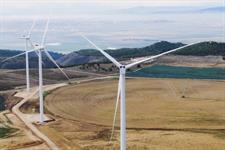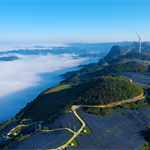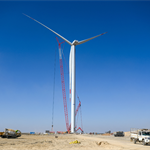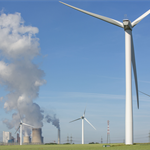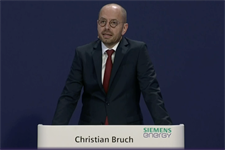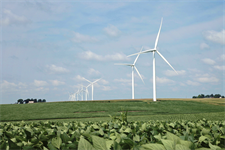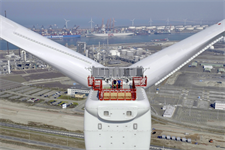‘Massive renewables growth not enough to prevent global warming’, DNV warns
Energy Disrupter

The world would still fall short of meeting the Paris Agreement climate targets even if all electricity was green from this day forward, according to a new report.
DNV’s new Energy Transition Outlook found that the percentage of energy demand met by electricity is due to double between 2019 – when it met 19% of demand – and 2050 (38%). Wind and solar are expected to account for the majority (69%) of this electrification by mid-century, according to DNV’s report.
The analysts expect fossil fuels to still account for 50% of the global energy mix by 2050, with most of this being gas. Meanwhile, hydrogen is set to meet just 5% of energy demand by mid-century – making the need to invest in and scale hydrogen and carbon capture and storage even more important, the analysts suggested.
DNV added that significant research, development and investment in hard-to-decarbonise sectors such as heavy industry, shipping, trucking and aviation – which cannot have their energy needs met solely by electricity – is needed now.
It also stated that energy efficiency remains the biggest opportunity to tackle climate change. Achieving greater efficiency is the reason why global energy demand will level off, even as the global population and economy grows, the analysts explained.
The report comes just two months before the COP26 climate summit in Glasgow and also charts wind power’s declining costs and increasing capacity factors over the next 30 years, as well as adaptations to help with variability as renewables play a greater role.
DNV projects that by 2050, the world will reach global warming of 2.3C higher than pre-industrial levels. Under the Paris Climate Agreement signed at COP21 in 2015, signatories called for governments to work to limit global warming to well below 2C above pre-industrial levels.
Remi Eriksen, CEO of DNV, described the coronavirus pandemic as a “lost opportunity” for speeding up the energy transition, as many recovery packages were designed to protect, rather than transform, existing industries.
He added: “We’ve seen governments around the world take extraordinary steps to manage the effects of the pandemic and stimulate a recovery.
“However, I am deeply concerned about what it will take for governments to apply the resolution and urgency they have shown in the face of the pandemic to our climate. We must now see the same sense of urgency to avoid a climate catastrophe.”

